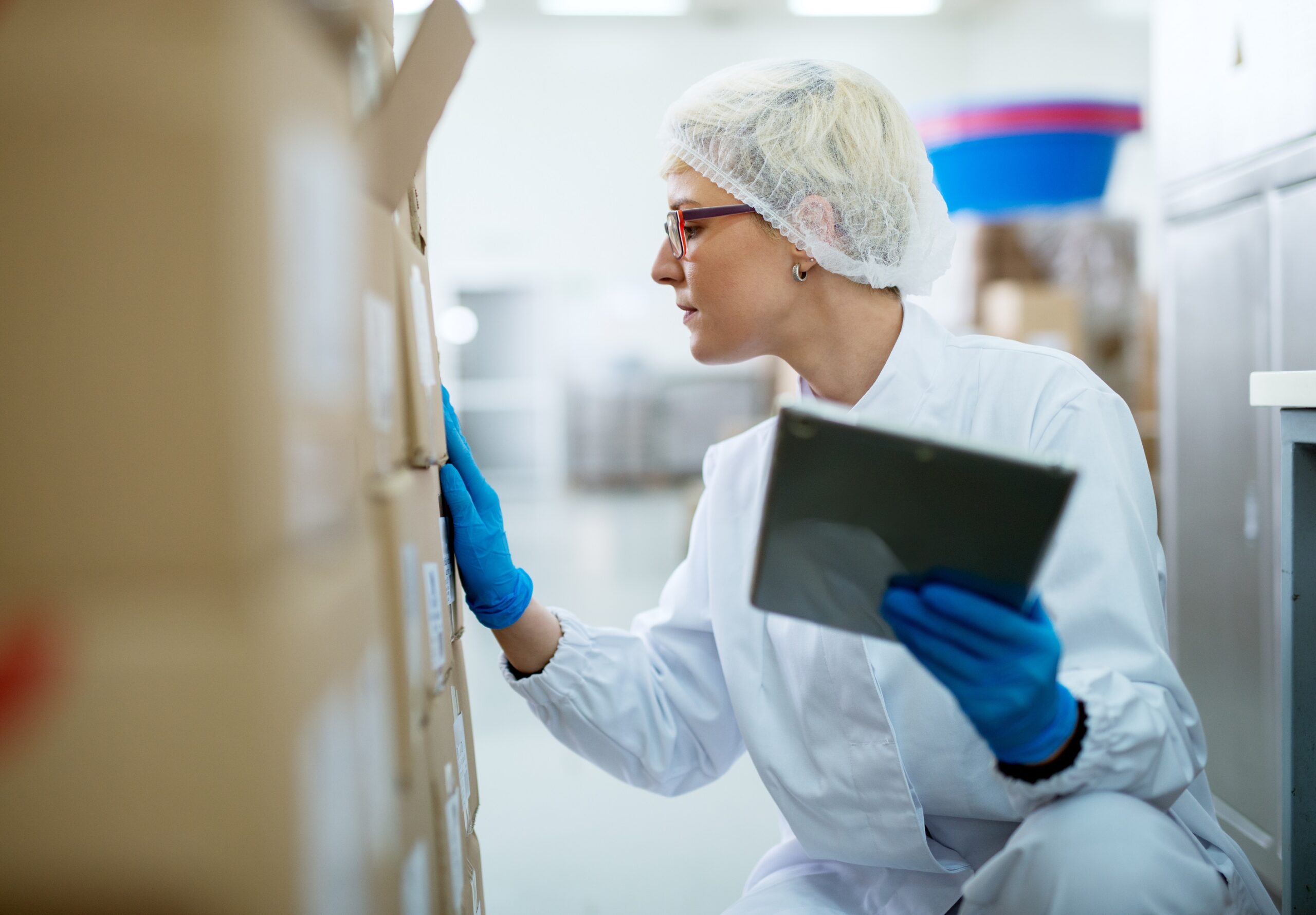
Medical device regulations have come under a great deal of scrutiny throughout the Covid-19 pandemic – although the impact on the regulators themselves hasn’t necessarily garnered the same level of mainstream media attention. Jamie Bell speaks to Gary Slack about the disruption notified bodies like the BSI have experienced over the past year, how it implemented a more remote approach to auditing in response, and the likelihood of these processes continuing to be used in a post-coronavirus world.
As we all know by now, there are numerous daily activities that have become far more complex – or, in many cases, prohibited altogether – due to social distancing measures and lockdowns.
Things we previously took for granted like buying a coffee, going to the gym and using public transport to get to work are no longer the simple, worry-free tasks they once were.
The use of antibacterial hand gel and face masks, as well as efforts to minimise social interactions and avoid meeting up in large groups have all played a role here and, for the most part, we’ve learnt to deal with this new way of life.
However, whether it’s Ofsted going into a school or a health inspector making sure restaurants are following food hygiene laws, the act of carrying out a routine inspection has become either significantly more arduous, or nigh on impossible.
Notified bodies like the BSI (British Standards Institute) that enforce medical device regulations have also felt these effects in their fullest over the past year, with the on-site audits of manufacturing facilities they conduct being especially disrupted.
And, as the organisation’s senior vice-president of global medical devices, Gary Slack has observed this disruption firsthand – not only in the UK, but across many of the 120 countries the BSI currently operates in.
How has Covid-19 disrupted medical device regulation?
There are two main components to the work done by the BSI in medical devices. The first is auditing – which involves an auditing team attending a company’s manufacturing site and assessing it from a quality management systems (QMS) perspective.
The second is carrying out conformity assessments, which involves the organisation’s technical experts assessing clinical data on a particular product’s safety and performance.
The key difference between the two is that the vast majority of conformity assessment processes can be – and traditionally are – conducted off-site, using documentation provided by the manufacturer to judge whether the product conforms to the necessary regulatory standards.
Conformity assessments have not been completely unaffected, as many of the scheduled technical audits associated with them – which involve a notified body sampling some elements of the product in person – have been postponed.

On-site QMS audits, however, have been hit far harder, as they were being conducted almost solely in person by notified bodies like the BSI until coronavirus-related restrictions started to be enforced in March 2020.
“At the end of February, we were delivering all of that activity on-site, and when the UK lockdown came in early-March, pretty much the only people that were still going to work were NHS staff and key workers,” says Slack.
“So, we went from almost zero quality management systems audits taking place off-site at the start of the year to doing 100% of them remotely in the second quarter of 2020 – that was a flick of the switch, and it was very challenging.”
This shift took a “huge amount of effort” internally for the BSI last year, according to Slack, but it also involved working with the MHRA (Medicines and Healthcare products Regulatory Agency) – and therefore the EU and the European Commission, which the UK regulator was being overseen by at the time – to find a way of continuing to deliver these audits.
Overcoming disruptions to medical device auditing
The outcome of the BSI’s discussions with regulators in the UK and Europe was that it was allowed to move to a remote model for the majority – but not all – of its audits, with some more high-risk audits like those involving manufacturers the organisation had never visited before having to be deferred instead of being carried out off-site.
“In the second quarter, when I said 100% of audits were delivered remotely, that’s all of the audit activity we conducted – that doesn’t cover every audit we needed to do, as some were pushed back, but all of the ones we were able to do took place remotely,” says Slack.
“That proportion went down to about 75% in the third quarter of 2020, and stayed at 75% in the fourth quarter as well. This was mainly because there had been a little bit of relaxation to the rules and we could deliver some on-site – within the rules of social distancing, of course.”
Slack states that, for all the in-person audits the BSI has been able to do since the first nationwide lockdown in the UK, it has taken every advised precautions including providing its staff with hand sanitiser and the right PPE (personal protective equipment), including face masks.
When remote auditing is the only option, however, video conferencing platforms like Zoom and Skype have proved to be just as helpful in the regulation of medical device manufacturing as they have been for a huge number of other industries during the global pandemic.
“We’ve already done quite a lot of that – but it’s not without its challenges,” says Slack. “If you imagine a manufacturing plant, it can often be noisy, and if the auditor needs to interview someone remotely it may be difficult to hear them.”
“And we’ve looked into that, we’ve tried using noise-cancelling headphones and that can make a difference by getting rid of background sounds.”
Another issue highlighted by Slack that can negatively impact a ‘virtual’ inspection is poor WiFi signal in some manufacturing facilities, which inevitably makes the likes of Zoom and Skype less practical.
“So, it’s certainly not been without its hiccups, but we do believe we are getting around them,” he adds.
Through mock audits with a handful of its clients in North America, the BSI is also currently investigating how best to alleviate one of the few remaining worries regulators have about the feasibility of remote inspections – which is that, without physically being there, it’s difficult to actually observe certain manufacturing processes.
“We’re using level two technologies, such as Skype and FaceTime via iPhones and iPads, but also level three technologies – which includes immersive technologies like VR headsets – to allow manufacturers to become the eyes and ears of the auditor,” says Slack.
The latter even includes things like testing directional microphones to overcome the problem of a noisy manufacturing environment, and the BSI is looking to roll out audits using immersive technologies in the next six-to-nine months – although Slack says it will need to gain the approval of various regulators around the world before doing this.
Could this more remote approach be here to stay?
Regulators like the UK MHRA and the EMA (European Medicines Agency) are likely to prefer a scenario in which auditing and regulatory processes return to tried-and-tested, on-site methods in their entirety once the worst of the pandemic is over. As Slack notes, the way notified bodies go about auditing has hardly changed in the past 30 or 40 years.
Despite this, he also believes 2021 “may not be a bad time” to start thinking about how these processes can be updated and conducted differently.
“We believe there’s some scope to benefit from Covid-19 in terms of an understanding of whether or not remote audits can be delivered successfully,” he adds.
“There’s a couple of drivers in that. One of these is the big cost benefit of being able to do some of this work remotely rather than travelling, and the other one is the fact the BSI has signed up to the United Nations’ Sustainable Development Goals – one of our ongoing aims is to reduce our carbon footprint and become more environmentally friendly.”
“In medical devices alone, we deliver a total of about 35,000 audit days per year across the world. We fly people all over the world and our carbon footprint is therefore, quite honestly, not great, like a lot of companies that work in this industry.”

While continuing to conduct these remote audits on a daily basis, the BSI has also been measuring the quality of this work in the background – in an effort to show that more remote auditing is a viable option moving forward.
“The good news is that our initial data shows that we are delivering good-quality, robust audits, and the outcomes are very similar to what we saw when we were going on-site.” Slack says.
The BSI is currently working on a white paper to present this analysis of how effective remote methods can be – even when compared to more traditional, in-person audits – and Slack claims the organisation may have the majority of its data together and “a good case” within the next six months.
“What we’d potentially like to demonstrate through all of this is that we should at least move to some sort of hybrid model, where we can deliver some of the auditing off-site, and maybe some on-site as well,” he adds.
“We think that commercially – and from a sustainable development perspective – that would be a lot better than what we’ve been doing in the past. And, theoretically, we’d like to see a slight shift in the norm so we can get something out of this very difficult period, rather than automatically reverting back to the status quo.”
As Slack himself acknowledges, the need for ample evidence that a new approach to auditing would not, in any way, compromise the interests or the safety of patients may mean it’s still months, or even years, before we actually see a more remote, digitally-led approach to medical device regulation.
Having said that, it’s clear Covid-19 has massively shortened the timeframe in which we could see these modernised, more practical procedures becoming a reality – with the pandemic even opening the door to the future possibility of dynamic auditing, whereby AI and other technologies are used to continuously monitor manufacturing sites all year round, in place of occasional inspections.






